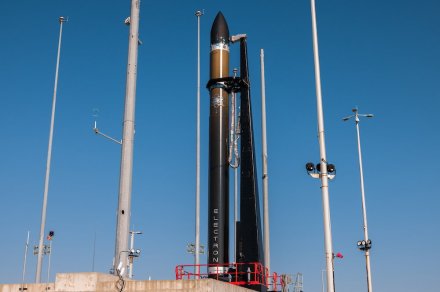Rocket Lab’s debut mission from US soil has been pushed to next year after strong winds forced the team to call off the latest launch attempt earlier this week.
The mission had already been delayed several times due to administrative issues with the Federal Aviation Administration. Poor weather conditions also played a part. The latest delay was put down to “strong upper-level winds” at Virginia Space’s Mid-Atlantic Regional Spaceport within NASA’s Wallops Flight Facility about 100 miles southeast of Washington, DC
“Continued strong upper-level winds tomorrow have ruled out the final day of the launch window for our first mission from NASA Wallops,” Rocket Lab said in a tweet on Monday, adding that a new window “is now scheduled to open in January.”
When it finally gets to lift off, Rocket Lab’s workhorse Electron rocket will deploy six satellites for radio frequency geospatial analytics provider HawkEye 360.
The flight will also see the first test of NASA’s Autonomous Flight Termination Unit (NAFTU) software, an automated system designed to ensure public safety during launch operations that will be made available to all US launch providers.
Rocket Lab’s first US mission, called Virginia Is For Launch Lovers, follows more than 30 satellite-deployment flights from Rocket Lab’s main launch facility in New Zealand since 2018.
Opening its first US launch facility marks a major expansion of Rocket Lab’s business as the company seeks out new government and commercial customers while moving toward a greater frequency of flights.
Rocket Lab will also use the Virginia facility for the first launch of its much more powerful, next-generation neutron rocketpossibly in 2024. Similar to SpaceX’s Falcon 9 rocket, the Neutron will have a reusable first stage that can land back on the ground upright shortly after deploying the second stage to orbit.
Such a system will help Rocket Lab to cut costs and offer competitive prices to customers who want to use its satellite deployment services. The new rocket will also be capable of interplanetary missions and even crewed spaceflight.
Editors’ Recommendations
